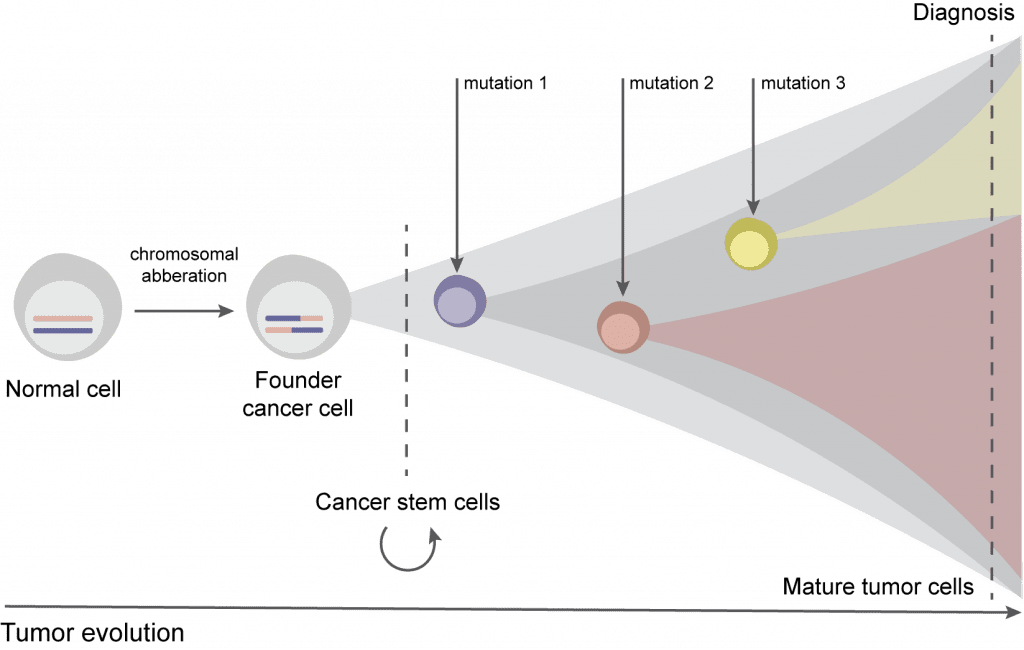Many cancers, including lung cancer and most lymphomas, are provoked by chromosomal aberrations – translocations or deletions, which eventually give rise to the very first cancer cell. In the course of the tumor evolution, this cell divides, producing a large spectrum of mature tumor cells, that accumulate additional mutations and acquire characteristics different from those of the cell of origin. Some cells gain proliferation advantages, engage in rapid growth and subsequently constitute the majority of the detectable tumor mass. These cells are targets of most existing anti-cancer treatments, as their characteristics are best-explored. On the other hand, a subpopulation of cells remains quiescent early in the tumor evolution. These cells are not detectable by any available technologies and can not be studied or targeted. Nevertheless, they are able to self-renew and differentiate into more aggressive phenotypes, giving rise to cancer relapse.

Using gene editing techniques, GÈNEVERT has developed an unique cellular system
for the induction and immediate detection of specific chromosomal aberrations at the origin of cancer. With our system, we can detect and isolate the ancestral tumor cells 24h after their appearance, follow their evolution overtime and obtain the otherwise unavailable information about all tumor subpopulations at all cancer development stages.

Combining our technology with the modern sequencing and proteomics techniques, we aim to discover persistent treatment targets that are present on all tumor subpopulations regardless of their differentiation stage and proliferative activity. Our ultimate goal is to deliver effective and relapse-free cancer treatments that will improve the life of patients.
